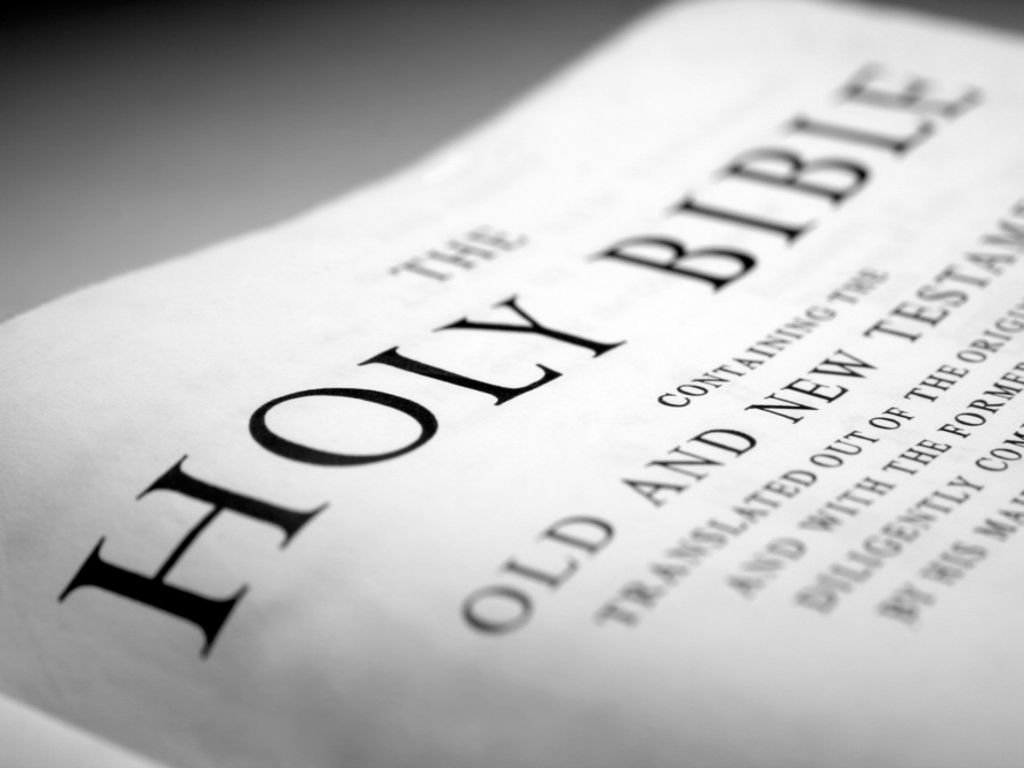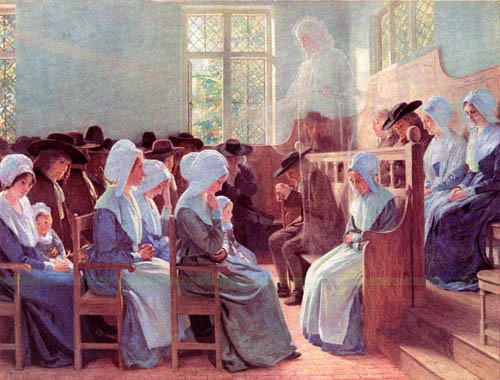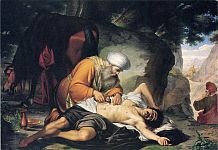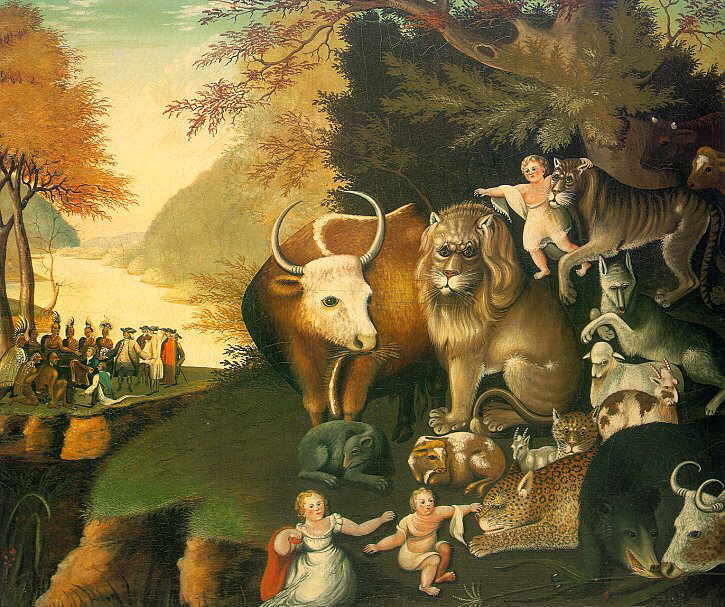“Facts about Friends” by Ted Hoare (Australia Yearly Meeting)
Welcome to our Meeting
This [page] provides a brief introduction to the Religious Society of Friends and we hope it will stimulate requests for further information which is available in other publications.
Our Christian Background
The origins of the Society are found in the seventeenth century in England, a time when many were questioning the established beliefs of the age.

George Fox (1625-1691) did not find answers to his questions in any of the churches of his day. Out of his searching came the spiritual message which swept a large part of the country and which resulted in the formation of the Religious Society of Friends.
Friends witnessed to an Alternative Christianity quite distinct from the churches of the time. As a result they were persecuted both by Cromwell’s Puritan government and by the restored government of Charles II. Fox did not intend to start a new sect. He wanted to persuade the church to return to what it had been in the days of the Apostles. He proclaimed the early preaching of Peter (Acts, chapters 2 and 3) that Jesus, who had been present in the flesh, had risen from the dead and was now come in the Spirit. That Jesus acted in the hearts of his followers purifying and empowering them.
Pursuing Peter’s teaching, Fox called for a radical, egalitarian, spirit-filled Christianity that would not be oppressive of people on account of race, sex, or class. He maintained that the message of the early church had been lost when the church became institutionalized and believed that he, and others with him, could stand in exactly the same state as Apostles, with the same power to teach, to heal, and to prophesy that the Apostles had.
The Ministry of All Believers
George Fox challenged the belief of the Roman Catholic and Episcopal churches in the necessity for, and the authority of, a hierarchical structure of Priests and Bishops. He claimed that everyone was able to have a personal relationship with the living Jesus without having to depend on the intercessions of a Priest or Minister. He taught that there is one, Jesus Christ, who can speak to each person’s condition and the responsibility for ministry therefore rested upon all.

The Place of the Bible
Friends hold that the words of the Bible should not be taken as the final revelation of God. The Books had been written by men who were acting under the power of the Holy Spirit and it was necessary to read the words in the power of the same spirit and to listen to what the Spirit then spoke in your heart. The words were active agents in the sense that, when read in the Spirit at the appropriate time, they would spring to life for the reader and take the reader forward on his or her spiritual journey.
The Light Within
George Fox preached the Good News that we were all children of God and that, as children of God, we had inherited powers from God. Each of us was given a measure of this power or light and in accordance with how we used it, so more would be given to us. Jesus had possessed this power or light, without measure so that he became the Light and the Light within is Jesus Christ.

The Inner Voice
Friends believe that if they wait silently upon God there will be times when God will speak to them in the heart. The silent Meeting of Friends is therefore the sacrament of communion with God during which Friends lay themselves open to the leading of the Spirit. George Fox often wrote about his “openings”, meaning revelations, and it has been the experience of Quakers over the centuries that “openings” will occur in the mind [and] that “a way will open”.
Openings can come to individuals when they are alone or may come out of the silence of a gathered Meeting for Worship. It is a perennial question as to whether a leading comes from God, from one’s own ego, or from another power and it is the practice in the Society of Friends to test a leading or a concern in a meeting with others.
When they meet for business Friends strive to obtain the “sense of the meeting” from those present before taking action for they recognize the light as a force which creates unity among all who respond to it or who “answer it in one another”. It does not follow that a majority is always right; a prophetic role is a lonely one and, if a concern is deeply felt and continues to be raised, the Meeting will continue to hear it and may later come to recognize its validity.
Equality before God
From the beginning Friends gave women and men equal status, for the fact that we are all children of God bestowed an equality upon all. This concept led to the testimony that one person should not set himself above others through human honors and distinctions which were meaningless in the sight of God. From this came the Quaker practices of simple living, plain dress and plain speech.
The Inward and Outward Journeys
One of the most important messages that Quakers have to offer is that religion, or belief, is experiential. It is not just a matter of accepting words or practices but of experiencing God for oneself.

The fact that God is always present means that the whole of a person’s life is sacramental; Friends affirm the need to practice the presence of God in all activity. It follows, therefore, that Friends emphasize the importance of combining the inward and outward journeys. To take the inward without the outward will lead to selfishness. You go inward to wait upon and receive the word and support of God and then take this out to action in the world. To take the outward journey without the inward leads to “burn out” because the essential support is not there to be called upon. The Inward/Outward Journey is the practical application of Jesus’ summary of the Law: “Love God and your neighbor as yourself.”*
It is the inward/outward process that has led Friends into pioneering social action such as reforms of prisons, schools and mental institutions, improving conditions of employment, supporting refugees and others in need, providing an ambulance service in wartime and examining the consequences of proposed legislation.

The Peace Testimony
As a Peace Church, the Society of Friends has always played a leading part in opposing preparations for war. The Peace Testimony, which is a very important Quaker principle, arose out of the belief in the in-dwelling Light or “that of God” in people. If that of God was a reality within oneself it would be denying the inner Spirit to take up arms against another.
Quaker practice does not permit the overcoming of some persons by other persons but tends toward the integration of various points of view into a new and higher level, for they recognize the Light as a force which creates unity amongst all who respond to it or answer it in one another. In appealing to the Light within another we also appeal to the Light within ourselves; as a result, we may find that the other is right and we are wrong. The Light is a source of unity. Force may create a superficial unity but it cannot provide organic unity.
Quaker Practices
Over the years the practice of Quakerism has developed in different ways in different regions. Members of the Society have been affected by varying influences such as the greater awareness of Eastern religions, the growth of psychology and the development of scientific knowledge. Since the Society is non-creedal, the spectrum of belief held by Friends has widened and different opinions may be held in different places or cultures. When one considers the diversity in other denominations, the differences between Friends are less remarkable. Friends Meetings may be either unprogrammed or programmed, the latter normally being led by a pastor.

Friends and other Faiths
Quakers have always taught that the Light of Christ has been given to all people everywhere. They maintained that many persons who never heard the historic Christ have had experiential knowledge of the Christ within and would hold, with Paul, that the Eternal Christ was known before the historic Christ. However, Friends are prepared to receive insights from wheresoever they may come and agree that there are things to be learned from contact with other religions. Friends are therefore ready to dialogue with people of other faiths and to share with them insights from our respective inheritances. However, Quakerism remains rooted in the Christian faith and the centrality of Jesus is paramount, although his sovereignty is not unanimously upheld.
Summary
The Religious Society of Friends is an Alternative Christianity which emphasizes the personal experience of God in one's life. Quakers understand the necessity of first listening to God before working in the world. They affirm the equality of all people before God regardless of race, station in life, or sex and this belief leads them into a range of social concerns.
Being “Children of Light” they find recourse to violence intolerable. Quaker thought is both mystical (waiting upon God) and prophetic (speaking truth to power). Friends believe that God’s revelation is still continuing, that God is not absent or unknowable but that we can find God ourselves and establish a living relationship thus being able to live in the world free from the burden and guilt of sin. It is the search for a closer relationship with God that is the Way.
Religious knowledge, like the appreciation of beauty, is not attained by a logical process of thought but by experience and feeling. Quakers maintain that the teaching of Jesus is a practical method for the guidance of the world today, that religion is concerned with the whole of life, and that, beyond a certain point, definition becomes a limitation.
* See also James 2:14-26.
[Copied from http://www.quaker.org/friends.html and lightly modified 2009-Dec-02]

